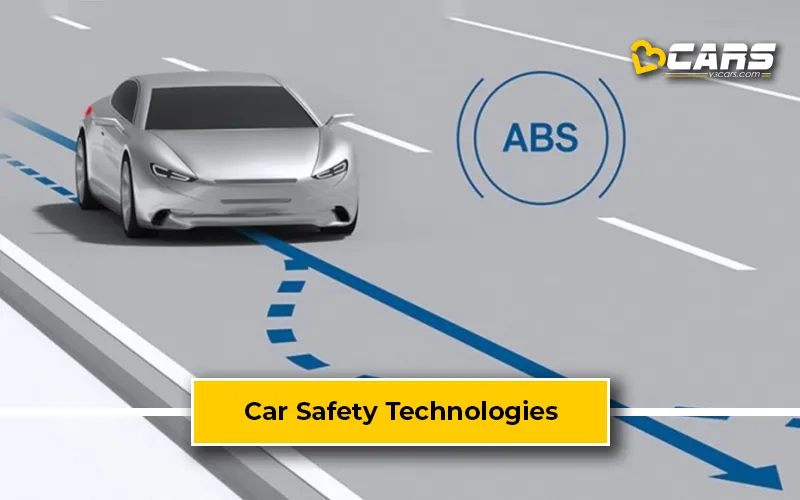Car Safety Technologies: How They Work – V3Cars Guide
Safety is paramount when it comes to cars and two-wheelers, and with technological advancements, modern cars come equipped with an array of safety features designed to protect occupants and minimise the likelihood of accidents. These safety technologies not only enhance the driving experience but also play a crucial role in ensuring road safety on Indian roads.

Importance Of Car Safety Technologies
In recent years, cars sold in India have seen a surge in safety enhancements, incorporating technologies that mitigate the risk of accidents and minimise their severity. Some of the most common safety features include:
Common Car Safety Technologies
1. Anti-lock Braking System (ABS)
Prevents wheel lock-up during hard braking, allowing drivers to maintain control and steering ability while stopping.
2. Electronic Stability Control (ESC)
Automatically applies brakes to individual wheels and adjusts engine power to prevent skidding or loss of control, especially during sudden manoeuvres.
3. Airbags
Deploy upon impact to cushion occupants, significantly reducing the risk of severe injuries during collisions.
4. Lane Departure Warning (LDW) and Lane-Keeping Assist
Alerts drivers if the vehicle drifts out of its lane and assists in gently steering it back on course.
5. Adaptive Cruise Control (ACC)
Maintains a safe distance from the vehicle ahead by adjusting the car's speed automatically.
6. Blind Spot Detection
Alerts drivers to vehicles in their blind spots, enhancing safety during lane changes.
7. Rear Cross Traffic Alert
Warns drivers of approaching traffic while reversing, especially in crowded parking lots or areas with limited visibility.
8. Forward Collision Warning (FCW)
Alerts drivers of an imminent collision with vehicles or obstacles ahead, providing time to react.
9. Forward Collision Avoidance Assist
Assists in applying emergency braking to prevent or mitigate a collision if the driver fails to respond to the FCW alert.
Also Read: Cheapest Cars In India With A DCT Transmission
Note: Calculate Car Fuel Cost with V3Cars for India and Other Countries
How These Features Operate
These safety features utilise sensors, cameras, and advanced algorithms to detect potential hazards and trigger appropriate responses. For instance, forward collision warning uses sensors to monitor the distance and relative speed of the vehicle ahead, alerting the driver of a potential collision. If the driver doesn't react, Forward collision avoidance assist automatically applies brakes to prevent the collision or reduce its impact.
Effectiveness On Indian Roads
The effectiveness of these safety features on Indian roads is influenced by various factors. While these technologies are designed to work in diverse conditions, real-world effectiveness depends on several variables like road infrastructure, driver behaviour, and environmental factors prevalent in India.
For instance, in congested traffic situations, adaptive cruise control might face challenges due to unpredictable driving behaviour. Similarly, the effectiveness of lane departure warning and lane-keeping assist might be impacted by poorly marked roads or erratic traffic patterns.
However, despite these challenges, these safety features have proven beneficial in reducing accidents and minimising injury severity. As road safety awareness grows and cars with advanced safety tech become more prevalent, their effectiveness in averting accidents is expected to increase.
We expect continued advancements in safety technology will pave the way for more sophisticated features, further elevating road safety for Indian drivers and passengers. Awareness, coupled with the adoption of these features, promises a safer driving experience and a decrease in road accidents.
Also Read: Upcoming Electric Cars In India
Note: If You Want to Buy a New Car, Calculate Car Loan EMI with V3Cars



0 Comments